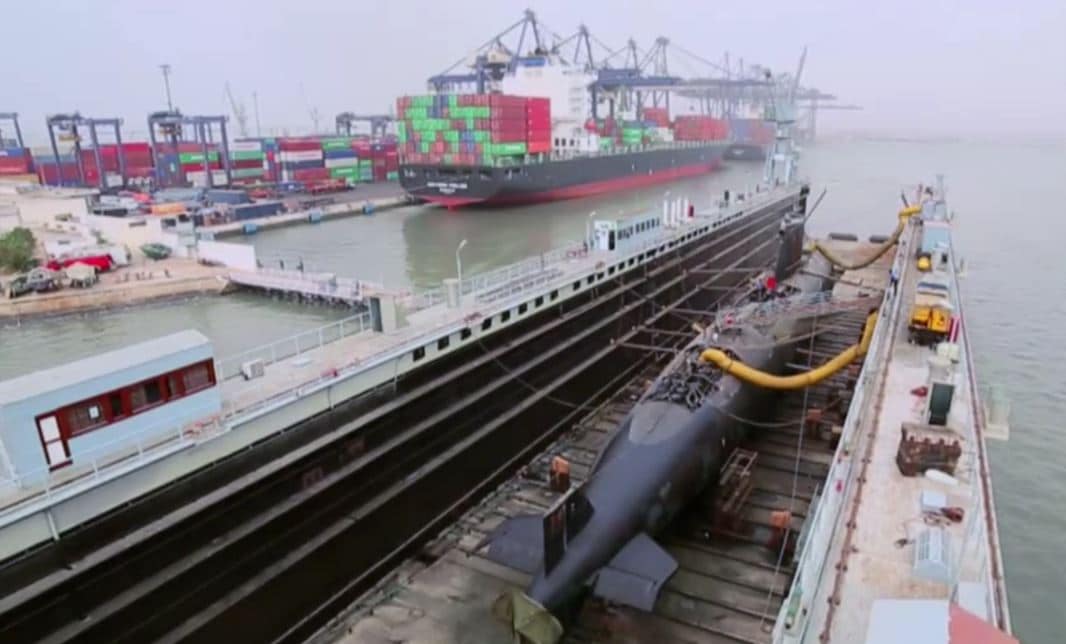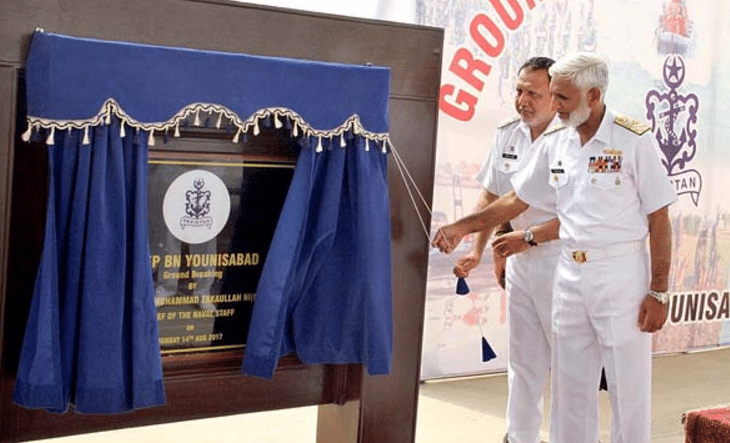2128Views 0Comments

Pakistan looks to maritime reform and industry development
Speaking to the Karachi Chamber of Commerce & Industry (KCCI) on January 24, the Pakistan Navy Chief of Naval Staff (CNS) Admiral Zafar Mahmood Abbasi called for government reforms to managing Pakistan’s maritime affairs as well as maritime industry development as means to catalyze growth in the area.
Adm. Abbasi reportedly stated that a proposal was submitted to amalgamate the maritime responsibilities being managed by at least eight federal government ministries into a single Ministry of Maritime Affairs staffed by professionals adept in the area.
“As a national cause, we should make our best efforts to boost marine resources. It is very important to convince business community and the policy makers to focus on this great hidden wealth,” said Abbasi.
The CNS outlined some of the steps the Pakistan Navy will be taking to support maritime development.
Efforts will be made to include relevant subjects in Pakistan’s higher learning, with a Maritime University slated to be established. In addition, the Navy will also form the Maritime Works Organization, which will undertake offshore exploration in Pakistan’s exclusive economic zone.
Abbasi claimed that efforts will be made to enable the private sector to fully engage in and benefit from maritime economic development. Assistant Naval Chief (Operations) Commodore Abdul Muneeb outlined several specific areas where Pakistan could improve, such as revitalizing the domestic shipping industry. As per Muneeb, Pakistan is spending $4-5 billion U.S. on foreign merchant navy services – this expenditure could be diverted to a local supplier pool of private and publicly-owned trading ships.
Notes & Comments:
Under the objective of expanding Pakistan’s maritime industry, the Pakistani government also approved plans to construct a new shipyard in Gwadar at the end of 2017. Projected for completion in three to five years, Gwadar’s shipyard could potentially supply commercial ships to Pakistan’s privately-owned and public-sector shipping companies. There would have to be substantive long-term opportunity for Pakistani investors to justify expenditure in procuring new ships (or even investment in Gwadar’s shipyard).
In this regard, Pakistan is pitching the possibilities of the China Pakistan Economic Corridor (CPEC) spurring $350 billion U.S. in shipping activity to and from Pakistan. However, even if this becomes the case, Pakistan’s private sector has not been confident about its chances of earning from Beijing’s investment. Citing Islamabad’s preferential treatment (e.g. tax breaks) for Chinese raw material, equipment and contractors, Descon – a major private Pakistani infrastructure company – chairman Abdul Razak Dawood told Dawn that the “lion’s share” of China’s investment in Pakistan is basically inaccessible.
However, Dawood added that the situation, while unideal, did not absolve Pakistan’s private sector from competing in foreign markets, especially with a relative dearth of promising domestic opportunities. In fact, doing so would help the national economy by generating the export of services and, potentially, material, labour and equipment. Nonetheless, government support is needed to cultivate a human capital and industry development environment conducive to reducing imports and increasing exports. Efforts such as Maritime University, Maritime Works Organization and a reformed Maritime Affairs Ministry nominally promise as much, but these are currently far from a long-term and substantive policy framework with quantifiable objectives (and methods to achieve said objectives).


